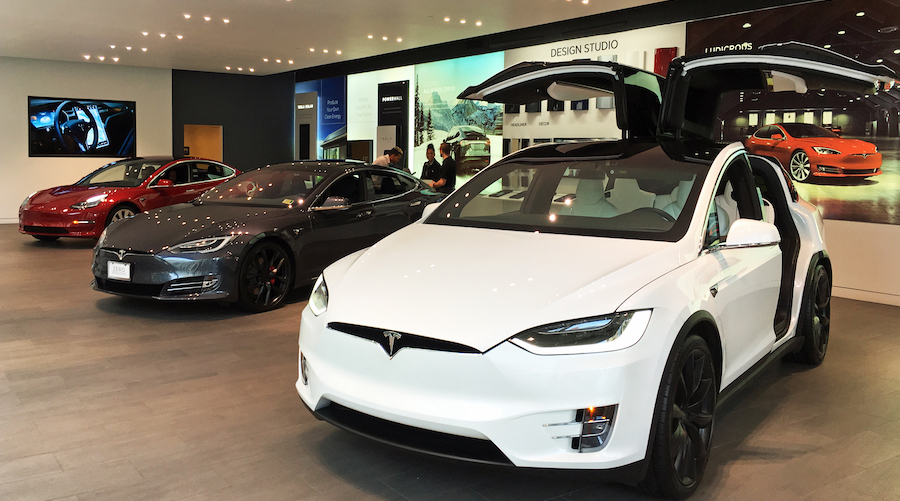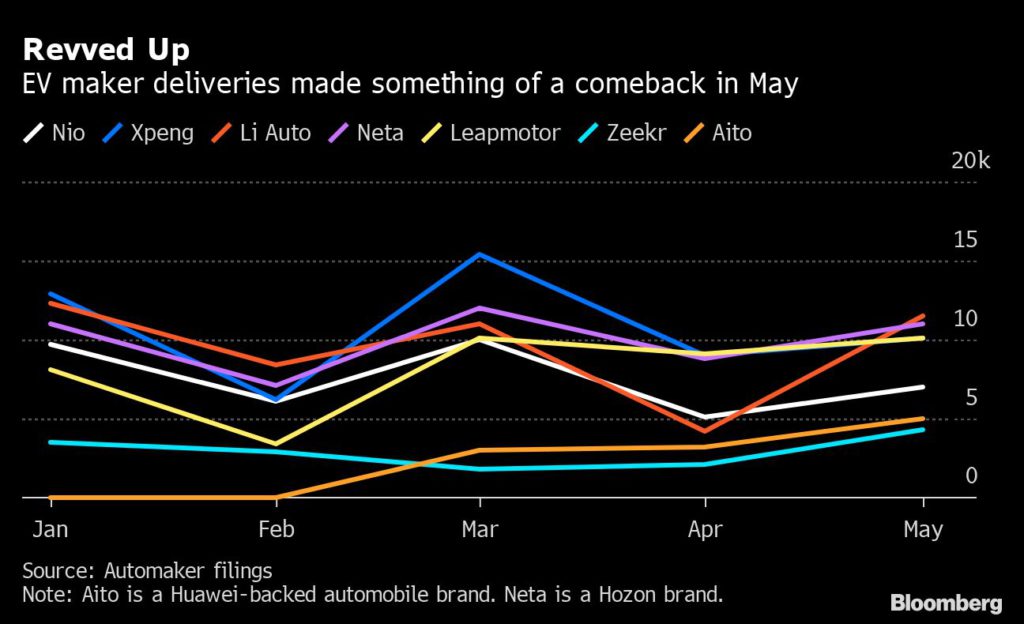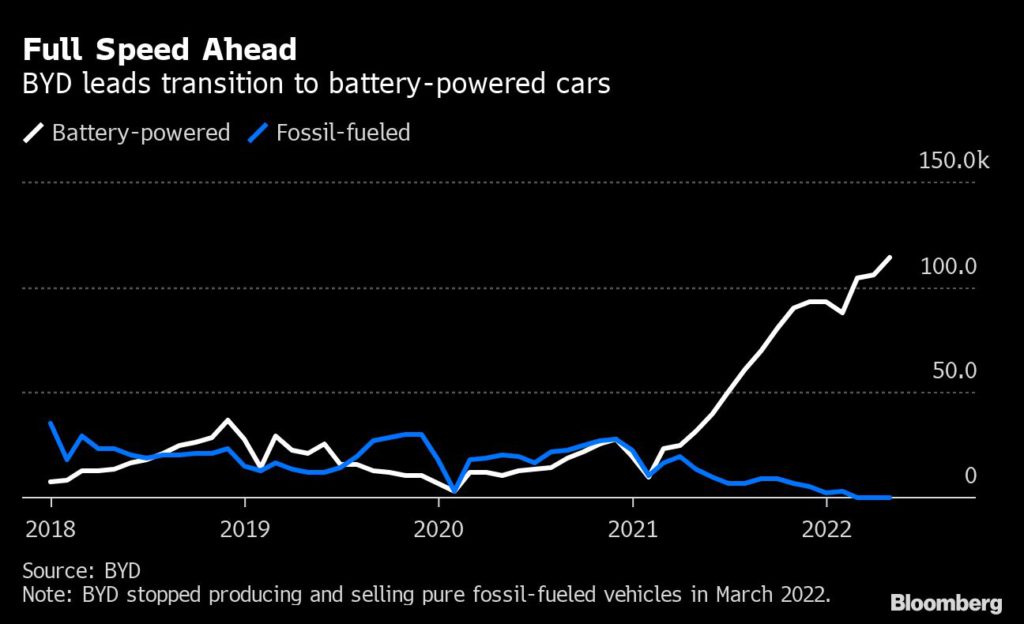China electric car sales rose in May as lockdowns start to ebb

China’s legion of electric carmakers appears to be shaking off the worst of the nation’s lockdown-induced supply chain snarls and parts shortages, with at least four selling over 10,000 vehicles last month.
The May bounce back in deliveries is an encouraging sign for the world’s biggest electric-vehicle market. The improved month-on-month shipments came despite residents of Shanghai — China’s financial and commercial heart — being largely confined to their homes, and capital Beijing and Tianjin also facing Covid-related disruptions.

Deutsche Bank AG said in a research note that the better-than-expected recovery was promising.
“China EV sales came in better than expected in May as the industry began recovering from the Covid lock-downs,” analyst Edison Yu said. “With the resumption of work and production in Shanghai, we expect material improvement in June.”
Yu did however cut his full-year China sales forecast by 300,000 units to 5.2 million new-energy vehicles, after factoring in the recent disruptions. The China Passenger Car Association said at the start of the year it expected around 5.5 million NEVs would be sold in 2022.
BYD Co., considered something of a bellwether for the industry because of its size in China, extended its lead over rivals, posting record monthly production and sales volumes. The company sold more than 114,000 EVs in May, up 8% from April and 360% from a year earlier — maintaining its 100,000-plus sales streak for a third straight month. The Shenzhen-based EV and battery-maker appeared to show no impact from China’s Covid lockdowns and associated supply chain and parts shortages.

More EVs made in China are also being exported to Europe, according to a Merics report dated May 30. Europe is now the primary destination for ‘Made in China’ electric vehicles, the report said, not because the cars are better but because European and US carmakers are switching to producing EVs in China, including for the European market.
“China’s strong export growth is set to continue as more firms announce export plans and Beijing phases out purchasing subsidies – a move that will slow domestic demand,” Merics analysts wrote. “Against this backdrop, Europe is a particularly attractive target due to its currently low trade barriers, well-developed charging network and high EV purchasing subsidies that can also be used for imports.”
Among China’s top three EV startups, Li Auto Inc. fared bettered than Xpeng Inc. and Nio Inc. in May. Nio delivered only 7,024 cars last month. It has been more impacted than others due to its production site in Shanghai.
Li Auto delivered almost 11,500 vehicles, exceeding deliveries in March, prior to Shanghai’s lockdown. The Beijing-based company warned it is still facing challenges due to parts supply shortages.
Smaller startups Hozon New Energy Automobile Co. and Zhejiang Leapmotor Technologies Ltd. also reported better monthly numbers however Hozon’s came in just shy of its March performance.
Zeekr, the EV brand developed by Zhejiang Geely Holding Group Co., reported 4,330 deliveries, its best-ever monthly performance even though it only started handing over cars to customers in October.
(By Danny Lee)
Related Article: Lithium mining stocks plunge after Goldman sees “sharp correction”
{{ commodity.name }}
{{ post.title }}
{{ post.date }}




Comments